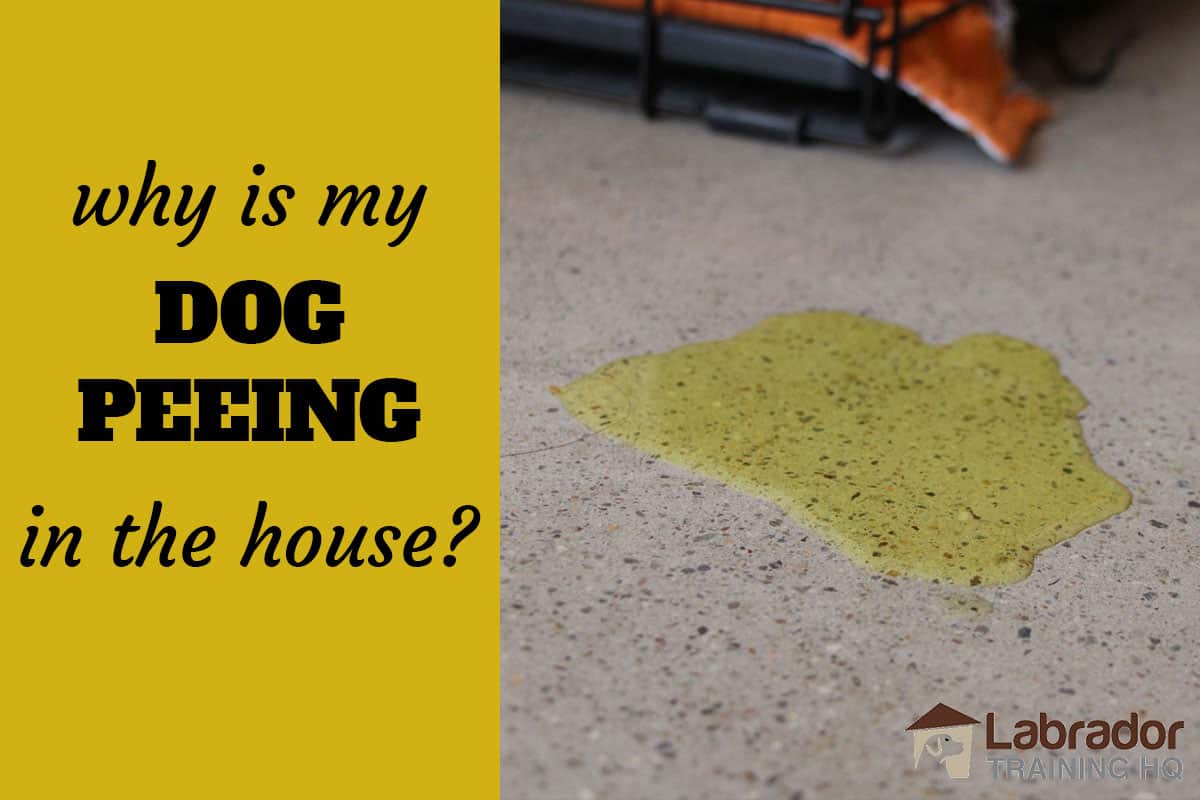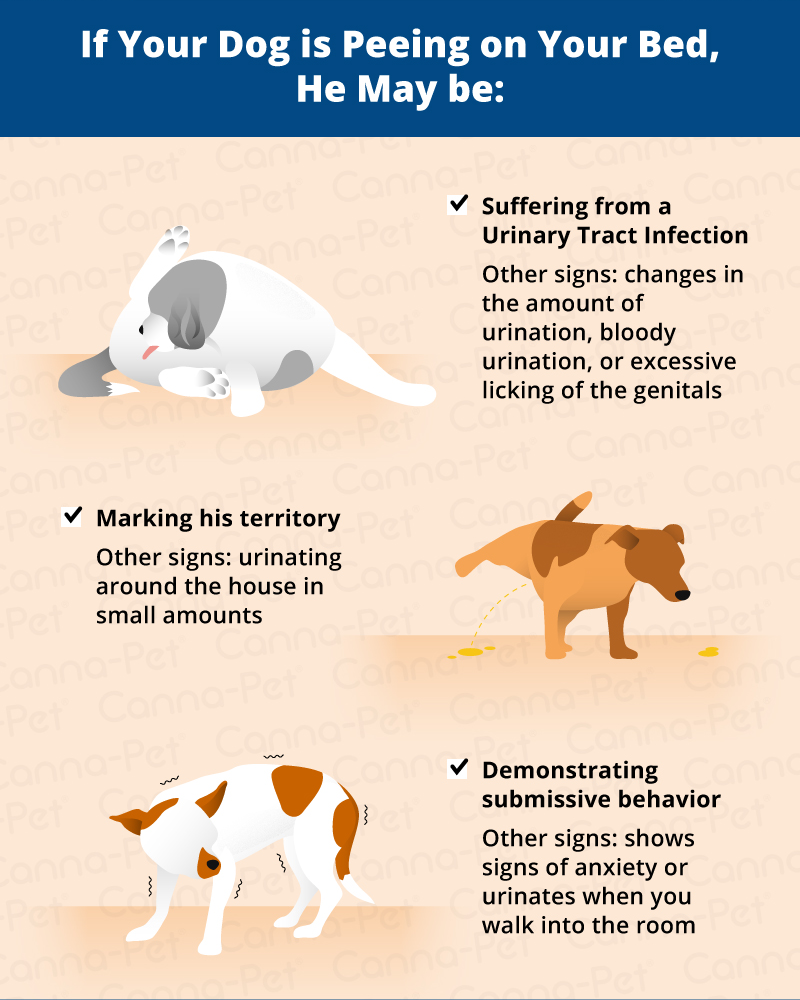Why is My Female Dog Suddenly Peeing Indoors?
Table Of Content

Diagnosis involves various blood tests, X-rays, ultrasonography, and aspiration or biopsy procedures. Diagnosis requires blood tests and ultrasounds, and treatment involves management with medications. Your veterinarian may adjust the doses or make further recommendations to alleviate the problem. This isn’t nearly as difficult as it sounds and is the most accurate way to find out exactly what type of bacteria or infection is causing the problems. Answer a few questions about your pet's symptom, and our vet-created Symptom Checker will give you the most likely causes and next steps.
Incontinence
Generally, puppies should be able to hold their urine for at least two hours, while adult and young dogs hold it for at least four to six hours. If your pet always needs to urinate more often than that, it could be a sign of a problem. Addressing such behavioral issues can sometimes require a deeper understanding of canine behavior. The above calculator is meant to serve as a general guide for your pet.
The Danger of Water Intoxication in Dogs - The Wildest
The Danger of Water Intoxication in Dogs.
Posted: Tue, 15 Mar 2022 22:24:31 GMT [source]
Diabetes
Dogs are emotional beings, and sometimes, understanding their feelings is the key to resolving behavioral issues. Investing in engaging toys like Non Squeakty Dog Toys or No Stuffing Dog Toys can be part of the solution. These products are designed to keep dogs entertained and can be a valuable addition to your pet care toolkit. Sharing experiences, seeking advice, or even consulting with dog behavioral specialists can bring new perspectives and practical solutions. Incontinence can also make it impossible for older dogs to control their bladders. This only generally happens in older dogs ages seven and upwards and will be accompanied by other signs of aging, such as reduced energy levels.
How Do Dogs Get UTIs?
If you notice your dog suddenly urinating frequently, a UTI could be the culprit. Behavioral conditions that cause fear, anxiety, or frustration may contribute to house soiling. For example, if your dog is frightened of certain noises, she may prefer to eliminate in a place where she will not encounter that trigger. Meanwhile, you may be able to create a sheltered outside bathroom area or train her to use an indoor potty station. A number of reasons could account for why your dog is peeing inside the house. It could be something as simple as he's drinking too much water and needs to go more often than he's able to go outside.
If there is not an obvious change that could have caused your dog to begin to pee in the home, we always suggest having them seen. This is most common in senior canine friends, but it can occur in a dog of any age. UTI’s can be extremely uncomfortable for our furry friends, causing them to feel the need to urinate more frequently than usual. This behavior will typically resolve as they get used to the new family member, but in the meantime, be sure to clean up any urine spots diligently. Some dogs will feel the need to mark everything in the home as theirs, as they may feel threatened by the presence of this new animal.
Featured Products
However, you do need to be careful about how you respond to inappropriate urination. The second thing to do is to visit your vet to see whether it is the result of a medical condition. But what dog (and cat) urine do contain is ammonia and in a much more concentrated level than exists in human urine. When breathed in, ammonia is a lung irritant and it can exacerbate the symptoms of asthma and allergies. The result, they won’t want to pee in front of you when you take them out for a bathroom break.
First, evaluate your home, surrounding environment, and daily schedule/routine for any specific changes. Your dog may have just one urinary accident when feeling anxious or fearful, or they may have several accidents that occur over a few days. By providing your mobile number, you agree to receive autodialed, recurring text messages from the HSUS with updates and ways you can help animals. Dogs who behave this way are usually shy or anxious, and may have a history of being punished for having accidents or jumping up on people.
In this article, we’ll explore some tips and tricks to help you tackle this problem and keep your home clean and odor-free. Getting to the bottom of why your dog is peeing more frequently and having accidents can take several visits to the veterinarian and several different diagnostic tests. And if a health issue is causing your dog’s accidents, treatment can become costly. Some dogs will leak small amounts of urine when overly excited, fearful, or stressed — it’s called submissive urination.

It commonly affects spayed female dogs, and can lead to urinary incontinence. A senior dog peeing in the house is often a symptom of a more serious condition. If your old dog is regularly peeing indoors, we recommend that you take him to your local veterinarian.
One household accident may not mean your dog suffers from incontinence, but several cleanups may signal a trip to the veterinarian is necessary for a checkup. Another sign of this condition comes with your dog dripping urine or you notice irritation on the skin near where they urinate. When a dog continually licks its penis or vulva, it could also be a sign. Urinary incontinence occurs when a dog involuntarily loses bladder control. This condition ranges from small to large leaks indoors due to a medical or behavioral disorder. Incontinence isn’t related to a dog purposely causing mischief, and chances are your dog is not being spiteful or acting out.
Boisterous greetings and outstretched arms can be overwhelming and can trigger emotional conflict or fear. If your house-trained dog is suddenly doing the opposite, it is important to take them to the vet right away to rule out any medical causes. Sadly, arthritis and muscle weakness can cause incontinence in older female dogs. When their legs begin to wobble, getting up from their bed becomes a mission, and they can’t always get outside in time. Older female dogs who are incontinent are usually prescribed with a hormone treatment or phenylpropanolamine, which can keep incontinence to a minimum. The notes you’ve taken about your dog’s accidents will help your veterinarian formulate a diagnosis and treatment plan.
– Submissive urination is a common behavior in dogs that can be triggered by fear, anxiety, or a lack of confidence. To address submissive urination, focus on building your dog’s confidence through positive reinforcement, training exercises, and creating a safe and secure environment for them. – To prevent accidents in the house when you’re not home, consider crate training your dog or using indoor potty options, such as pee pads or artificial grass patches. Providing mental stimulation and regular bathroom breaks can also help prevent accidents while you’re away.
If your dog starts going in the house, the first thing you should do is have him examined by a veterinarian to rule out any potentially serious underlying health concerns. If it turns out that your dog is suffering from a health condition, chances are that once the condition is treated he'll stop relieving himself inappropriately. Most urinary tract issues in dogs are treatable by simple medication, dietary supplements, or diet changes, while some issues like bladder stones might require surgical procedures. Note that incontinence is a symptom of many other health problems in dogs.
However, if there is not an obvious factor that could have led to the change in behavior, it is always safest to have them seen. If this is the case, they may be struggling with urinary incontinence. It is seen most in young dogs and puppies, but it can happen in dogs of any age.
Comments
Post a Comment